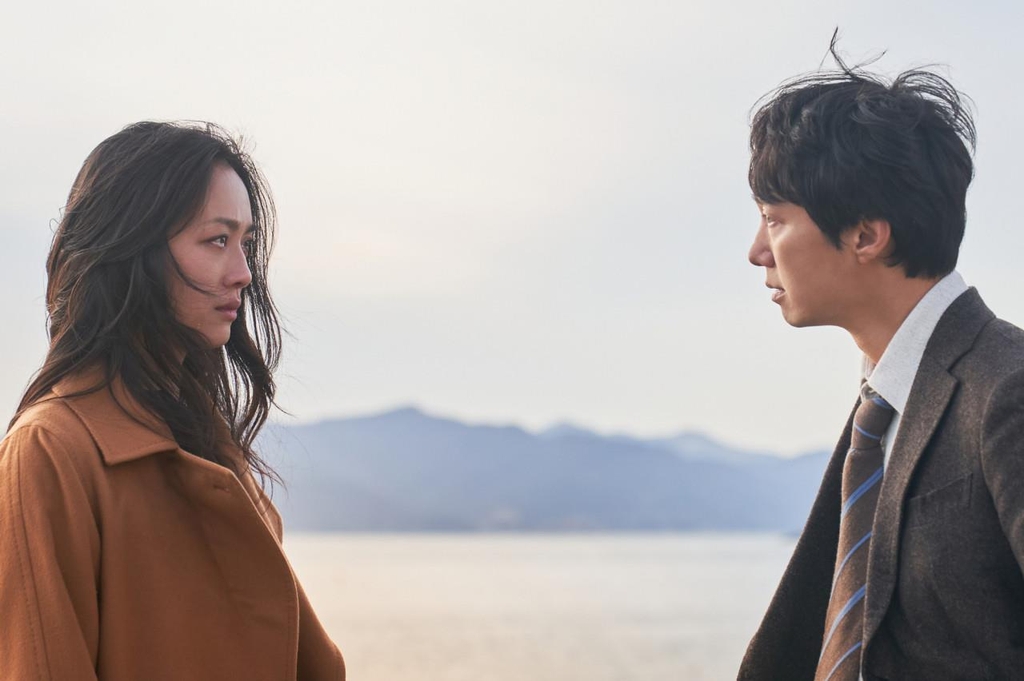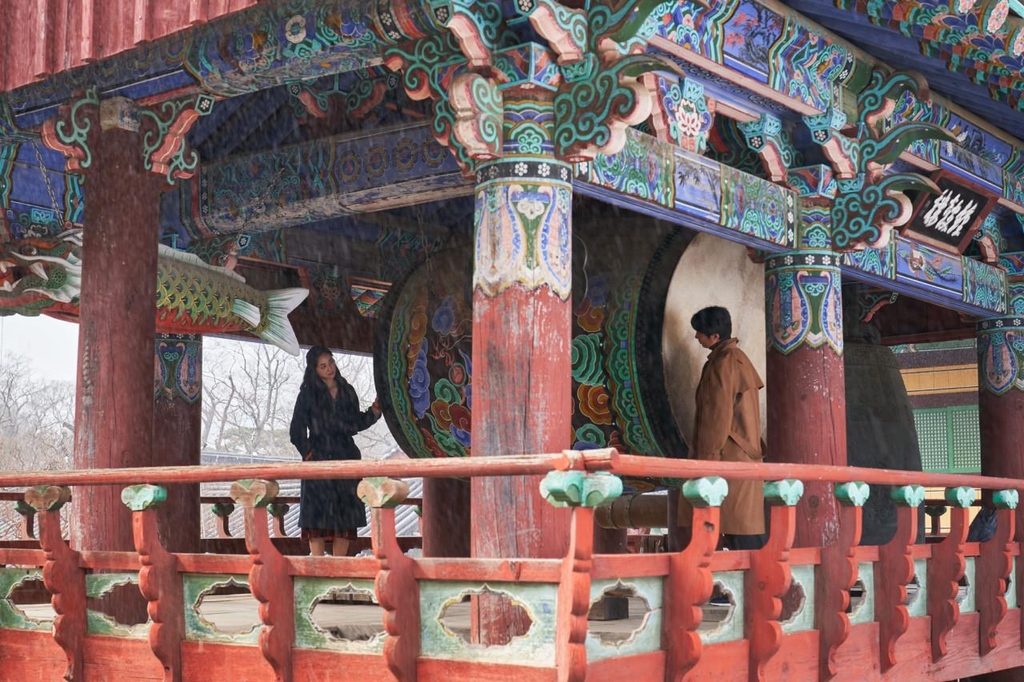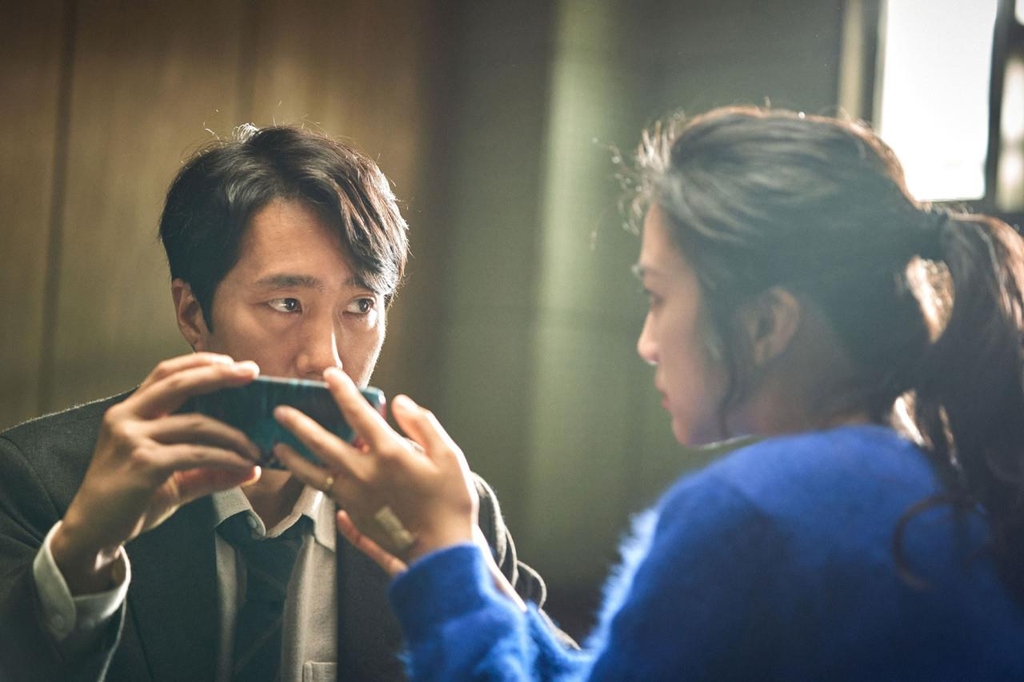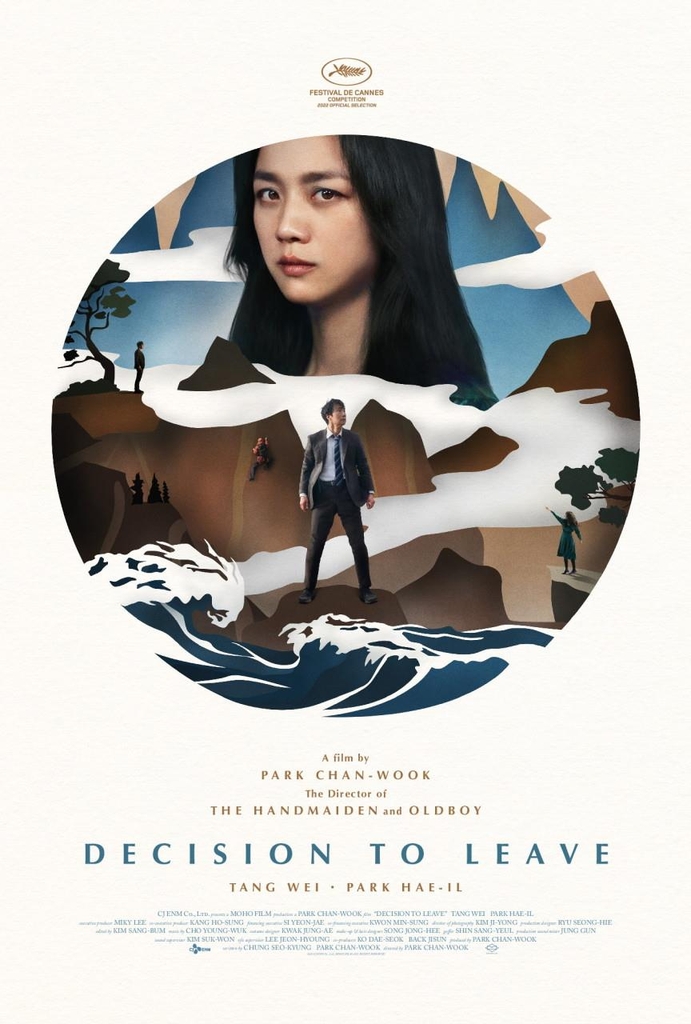- California Assembly OKs highest minimum wage in nation
- S. Korea unveils first graphic cigarette warnings
- US joins with South Korea, Japan in bid to deter North Korea
- LPGA golfer Chun In-gee finally back in action
- S. Korea won’t be top seed in final World Cup qualification round
- US men’s soccer misses 2nd straight Olympics
- US back on track in qualifying with 4-0 win over Guatemala
- High-intensity workout injuries spawn cottage industry
- CDC expands range of Zika mosquitoes into parts of Northeast
- Who knew? ‘The Walking Dead’ is helping families connect
‘Decision to Leave’: visually stylish and ravishing love story by Park Chan-wook
Korean auteur Park Chan-wook’s past award-winning films like “Oldboy” (2003), “Thirst” (2009) and “The Handmaiden” (2016) are notorious for visceral eroticism and gory details of violence.
Most of his critically acclaimed works, including “Sympathy for Mr. Vengeance” (2002) and “Sympathy for Lady Vengeance” (2005), received R ratings for their high degrees of violence and sex.
However, in his latest romance thriller “Decision to Leave,” which brought home Best Director at this year’s Cannes Film Festival, the director refrained from such gruesome and cruel scenes.
Instead, he focused more on sophisticatedly depicting sensual and romantic emotions and danger revealed in unconscious moments between a man and a woman.




This image provided by CJ ENM shows a scene from “Decision to Leave.” (PHOTO NOT FOR SALE) (Yonhap)
Hae-joon (Park Hae-il) is an elite detective well known for his obsessive infatuation for cold cases and his diligence.
One day, a middle-aged man falls to his death from a mountain cliff and the case seems to be concluded as an accident.
But there is something odd in the reaction of the man’s Chinese wife, Seo-rae (Tang Wei), a nurse for the elderly. She emerges as a prime suspect as she shows no grief over her husband’s death and even smiles when she talks about it.
The detective continues the investigation and holds stakeouts to keep an eye on Seo-rae in order to find decisive evidence to accuse her of murder.
After the stakeouts and in-person questionings, however, he is rather mesmerized by the woman’s mysterious but quiet and elegant demeanor and her awkwardly formal way of speaking Korean.
Hae-joon tries to clear Se-rae of murder charges but becomes aware that the woman has obscured his professional eye. Even one of his closest colleagues points out that he is showing too much favor to the suspect and is messing up the investigation.
To get away from her, Hae-joon moves to a new city where his wife works. But he runs into Seo-rae and her new husband there. He feels helpless with her nearby existence.
“Decision to Leave” seems to be a familiar and common neo-noir film that tells the forbidden love between a male police officer and an attractive female suspect like the 1992 erotic thriller “Basic Instinct.”
But the 138-minute movie does not use typical plot devices that many such love stories do.
It creates more doubt and focuses more on the irresistible romantic relationship, while the two protagonists do not explicitly express their feelings and do their best for their spouses.
Viewers may remain doubtful about Seo-rae from the beginning, but as the story goes on, they come to understand the emotions of her and Hae-joon, and the decisions they make.
The mystic mood created by mist and fog that lays over the entire film and the vivid sounds of waves and wind effectively replace the director’s signature electrifying scenes of violence and sexuality.
The film’s idiosyncratic tone works well with the restrained performance of the two lead actors, who showed exceptional on-screen chemistry in expressing complex and subtle emotions.
And director Park does not fail to craft his new title with effortless humor and mouth-opening stylish mise-en-scene.
“Decision to Leave” will hit local screens next Wednesday.











